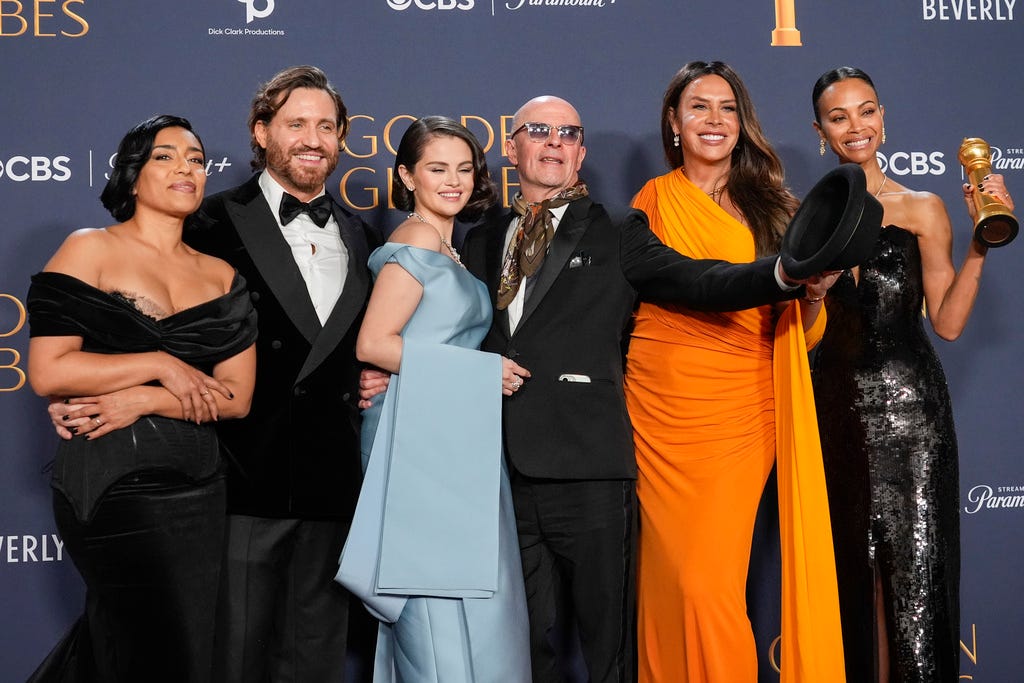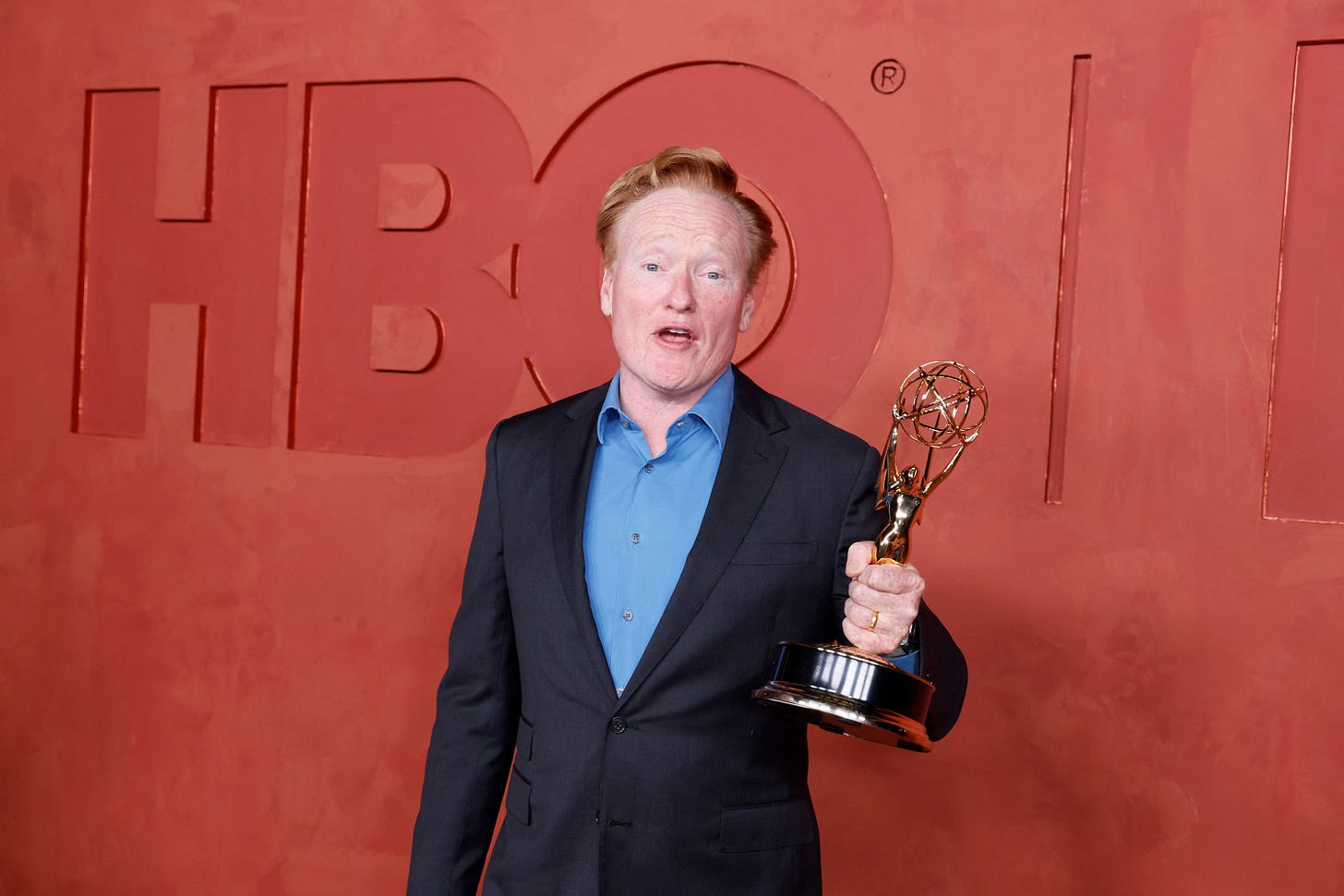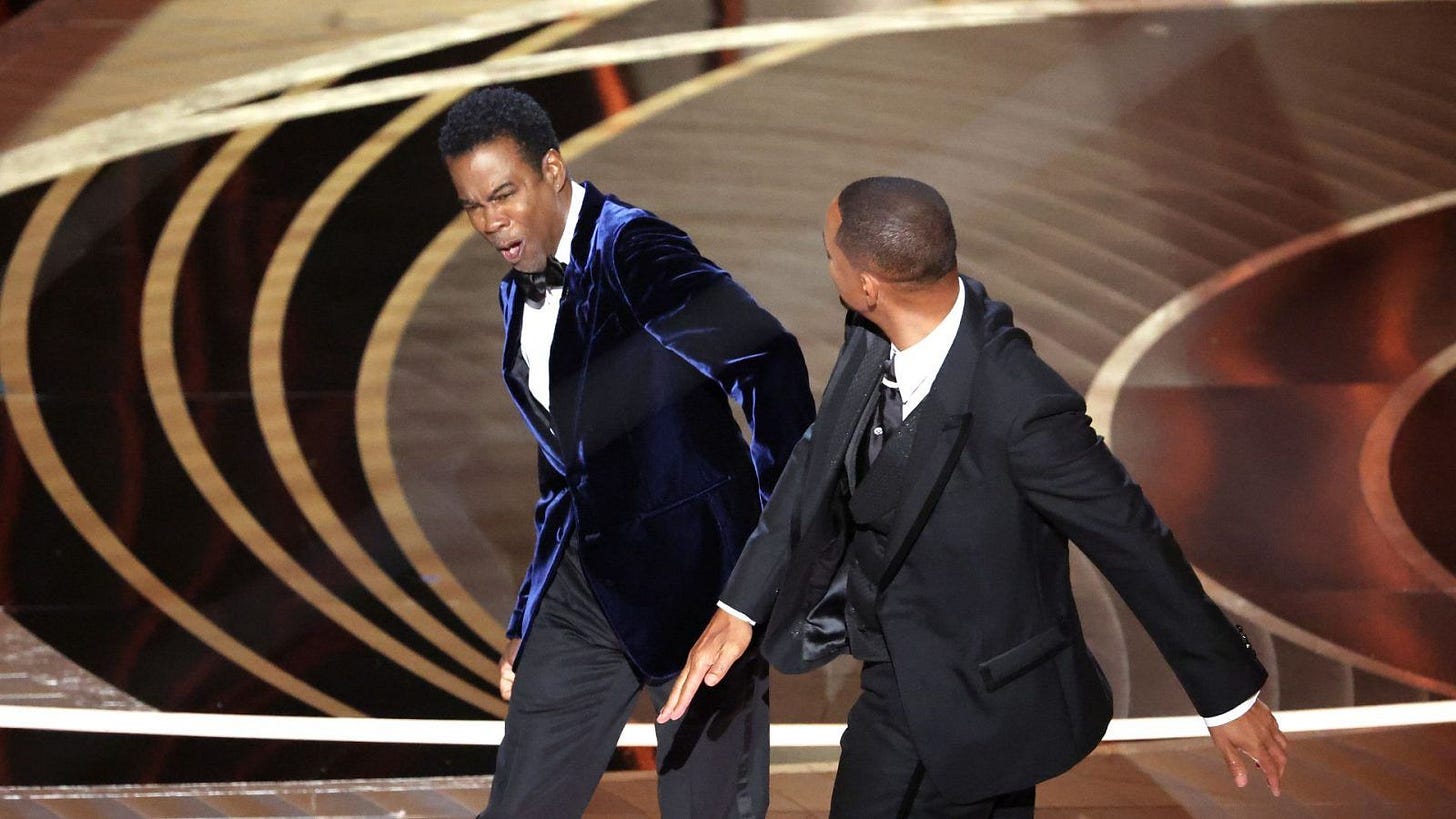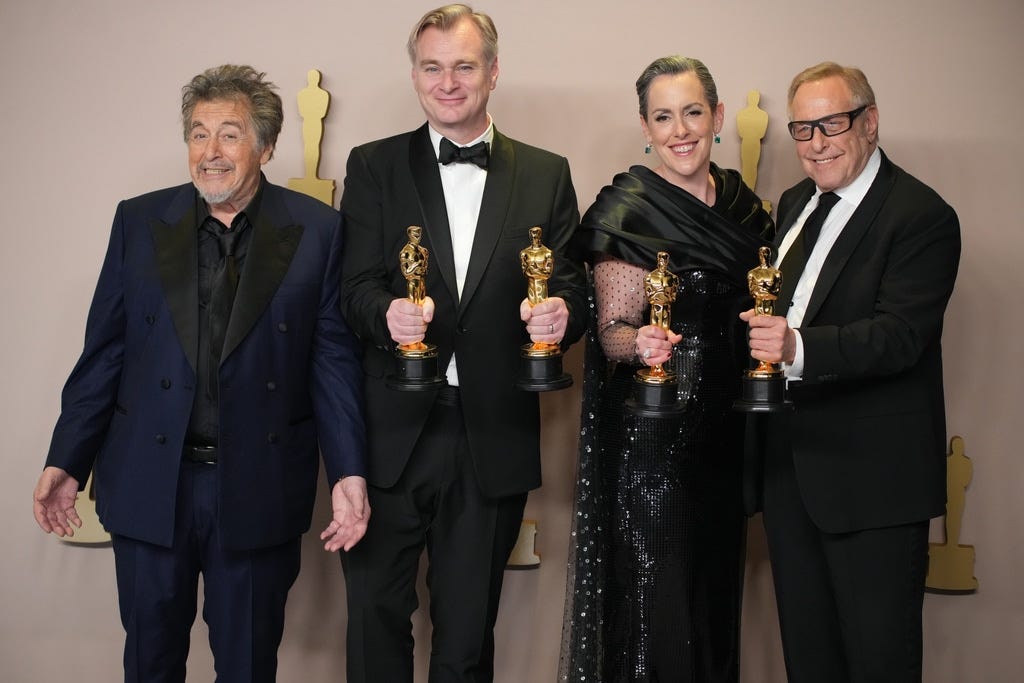The shit discourse of Oscar nominations
Oscar nomination snubs don’t exist, critics are abdicating their responsibility, and other shitty discourse methods reducing film to another piece of content.

(Note: I’m well aware that the following criticism is extremely niche, maybe pointless, and naive as hell, but I think it’s a symptom of a more important criticism of films today: critics, film buffs, and others producing and consuming online discourse is aiding and abetting the business interests’ goal of turning film into another form of content, like TV series and sporting events, accelerated by streaming apps. This argument deserves more attention than will be made here; but I think the Oscars, and awards season discourse in general, is a great place to witness some ugly side effects.)
Awards season discourse and the CJCCs
The awards season in the motion picture industry now takes place for half of the year, starting in early Fall and ending in early Spring. Throughout this time, films are released in international film festivals and/or exhibited in theaters (unless Netflix or Apple got hold of them); distributors spend robust sums on marketing/PR for the films/filmmakers with positive critical support; industry events are held with more frequency in Winter; and all the while, the awards season discourse, run under the authority of critics, journalists, and cultural commentators (henceforth known as CJCCs) working for industry-dominant publications, is absolute shit.
This discourse picks up with considerable force at the end of the calendar year after the CJCCs watch and categorize the “best” films of the year. This happens in tandem with the lead-up to the Oscar nominations in January, when the public is curiously googling predictions and Academy voters have access to the films on the Academy streamer. Then comes the sprint from nominations to ceremony, which takes another month and a half. But in that period, Oscar predictions aided by CJCCs and fueled by nominations dominate the discourse.
It is the responsibility of film critics to be critical (New and Selected criticisms of the CJCCs)
There are two ways Academy members can vote:
Who/what they think is the best in each category
The films/filmmakers their family and friends worked on/with
That’s it. But most of the critical discourse around films has been abdicated to pop culture podcasts and SEO-driven publications, half of which don’t pretend to be critical. The same people, from film gatekeepers at the prestigious rags to YouTube reviewers, who lament the fall of film are the same people accelerating that process online through so-called discourse. It’s a simple idea: “Oscar nominations” and variations of the phrase along with other keywords (Oscars, snubs, nominations, predictions, etc.) are being searched en masse. Therefore, CJCCs dump these phrases a lot and early in the “articles” on “authority” websites that search engine crawlers trust. The content of those articles be damned, it doesn’t matter.
(You’ve seen this before when you look up recipes and have to scroll past an endless amount of text and ads to get to the checklist of ingredients. All that text is filled with SEO-friendly phrases that got the web page, of which there are many thousands, to the top three searches. Their placement doesn’t depend on the quality of the recipe. It’s not naive saying that these critics, journalists, and the most odious of them all, cultural commentators, are treating The Brutalist and Emilia Pérez like spaghetti carbonara and butter chicken.)
The CJCC discourse around Oscar nominations falls somewhere between ego-filled Nostradamus and de-fouling hull cleaners. They do everything in their ability to avoid talking about the two above-mentioned ways Academy members vote; first, because it doesn’t provide enough SEO-driven content that receives clicks and ad revenue; second, because they are firmly entrenched in the politics of Hollywood through their professional careers and don’t want (or have the ability) to write critically. And most of them are not dumb, they know what’s up.
On top of that, there must be a level of non-quantifiable envy and projection. The CJCCs, of which there are probably less than a hundred with some authority, number far less than the more than ten-thousand Academy voters. Yet the former always calls out the latter as voting/behaving in a certain predictable way that is gamified to hell in the name of awards season discourse. (To be fair, filmmakers lump all “critics” together as well.) Either the Academy votes similarly to how they voted before, or they “surprise” the CJCCs. Envy because many of these CJCCs wanted to become filmmakers but aren’t in the (Academy) club; projection because of the CJCCs’ speculative career prospects in an unprofitable industry (film writing) that uses them for marketing purposes.
A list of Oscar discourse annoyances perpetuated by the CJCC
Feel free to craft a bingo table using these. (This list is not exhaustive, please feel free to comment if I left anything out.)
The Narrative (mostly applies to actors)
Career achievement recognition (Isabella Rossellini, James Mangold, Edward Norton), up-and-comer welcome to the club (Ariane Grande), multi-film year (Sebastian Stan), the “brave” performance of a multi-million dollar over-40 actor (Demi Moore, didn’t work this year for Nicole Kidman), career comeback (also Demi Moore), King-making potential (Timothée Chalamet), Adrien Brody as Holocaust survivor (Adrien Brody), Diane Warren (Diane Warren), surprises (Fernanda Torres and I’m Still Here), record-breakers (Karla Sofía Gascón), finally getting Academy recognition (Sean Baker), French (Jacques Audiard, Coralie Fargeat), and hmm how did you get there? (Felicity Jones). Notice how none of these Narratives take into account the quality of their performances and filmmaking achievement.
(No Other Land landing a nomination without American theatrical distribution is one of the most impressive feats and should be recognized as such; included with that is the background story of The Seed of the Sacred Fig; put those in your Narrative pipe and smoke it.)
Precursors
One of the main predictive methods used by CJCCs is the analysis of precursor events and award shows (Golden Globes, SAG/DGA/PGA awards, industry events, etc.) to determine Academy vibes. One would confuse them with Vegas odds-makers if not for the ridiculous arguments, such as a Globes speech putting someone on the radar of Academy voters. Again, the CJCCs don’t consider quality; if an actor wins every precursor award, they are automatically slated to win the Oscar.
One of the best recent precursor award conspiracy theories is the SAG alphabet bias:
This is an occurrence where awards voters are lazy to the point where they only vote for people near the top of their ballot. It sounds crazy, but it’s pretty much taken as a serious factor by all Grammy predictors, in the same way we take into account SAG or BAFTA noms. And it does explain some of the most bizarre choices they’ve made in recent years (most notably ABCDEFU in Song of the Year).” This Reddit user did the hard work and cross-referenced names with different awards over the last several years. They interestingly write that they “looked at all the surprise nominations and surprise snubs from the past 3 years.
Again with the “surprise” that something didn't go according to plan. Also, this is wrong because snubs do not exist.
Snubs do not exist
Films and filmmakers are not entitled to awards. Your favorite film/filmmaker didn’t get nominated? boo hoo (I dipped into this trap two years ago trying, and failing, to catch the SEO train.) You’re sad that two Luca Guadagnino films didn’t get a single nomination? But everything on your twitter/bluesky feed was indicating the Challengers score was a lock, including Trent Reznor and Atticus Ross winning for it at the Globes, (even though the CJCC always disparages it). Oh my! so sorry.
Sometimes, but not always (unless talking about other events like BAFTA and European film festivals), the CJCCs disgracefully pull the racism card to explain snubs and exclusions. Then they use the critical quality of that performance to justify their argument. This falls under the film-bubble category of thinking skin tone determines social difference rather than ethnicity, income, birthplace, class, etc. Imagine writing articles for pennies per word and defending the chance for a rich and famous person to be nominated for, not even to win, an award. This also connects to a strange anxiety against foreigners (non-Americans), who the CJCCs have a hard time thinking of as diverse individuals.
International voters (aka the hordes)
Awards season discourse has seen the argument that the inclusion of more international voters leads to more international (non-American) film nominations. For example, I’m Still Here received a best picture nomination over American films that would have “traditionally” been nominated, such as September 5, before the inclusion of more foreigners. This jingoism doesn’t need much rebuttal other than, why would they assume that non-Americans vote as a single bloc for anything non-American; they think that little of them? How would they be coordinating that, perhaps a foreigners-only Academy Telegram group?
That got how many nominations?
Emilia Pérez tied for the second most Oscar nominations (13) ever, which would have shocked the CJCCs if they hadn’t been predicting/expecting/preparing for this putsch for months via vibes and precursors. How dare this foreign film rank alongside Shakespeare in Love, Chicago, and The Curious Case of Benjamin Button! Many of the CJCCs were dismayed because they don’t know a single person who liked the film, and it’s doing quite poorly ratings-wise on Letterboxd (while failing to mention it’s “generally positive” rating on Metacritic). To that point (as with being upset about “snubs”): get off film-twitter/bluesky and meet non-film industry humans.
It’s easy to explain how Emilia Pérez got 13 nominations: it’s a foreign language, stylish musical that was received favorably critically. If Oppenheimer had been a foreign language musical, it could have gone from 13 to 15 nominations, making it the most Oscar-nominated film of all time. If Emilia Pérez wasn’t a musical and in English, it would have received 11 nominations. It’s that simple. The number doesn’t really matter. That’s just how the Oscar categories are set up.
After the Oscars, clickbait killed the film discourse
As I wrote in The Narrative, notice how none of these consider the critical quality of the actors/filmmakers. This extends beyond awards season discourse; the same level of critical abdication is found throughout the year in clickbait listicles, clickbait controversies (Karla Sofía Gascón is really going through that ringer now!), clickbait celebrity vs. celebrity lawsuits, clickbait production rumors, clickbait box office under-achievers (followed by the egregious “are movies dead” discourse that is dispelled by clickbait box-office over-achievers), clickbait obituaries, clickbait reviews, and clickbait interview excerpts taken out of context, which is all done for advertising and marketing and further aids in the conversion of film to content.
Thank you once again for checking out my Substack. Hit the like button at the top or the bottom of this page to like this entry, and use the share and/or res-stack buttons to share this across social media. Leave a comment below if the mood strikes you to do so. And don’t forget to subscribe if you haven’t done so already.






